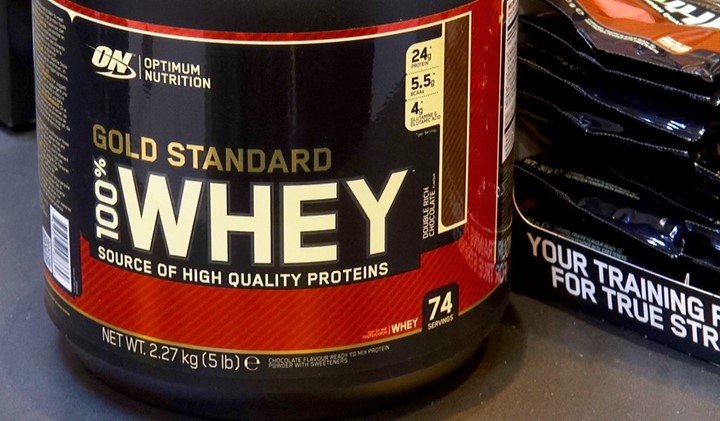Most people use whey protein as a supplement along with exercises. This is done to increase the mass of lean muscle and promote the synthesis of muscle protein. Milk has two proteins namely whey and casein. Whey protein is formed in the form of by-product when making cheese or separated from casein. Whey is a complete protein because it has 9 significant amino acids and has low lactose. There are several benefits brought by consuming whey. However, it has cons too; here are the pros and cons.
Pros
1. Aid weight loss: According to a study published in “Nutrition and Metabolism”, patients who consumed whey lost weight and body fat significantly compared to those who consumed controlled beverage.
2. Lowers cholesterol: Study that published in “The British Journal of Nutrition”, overweight men and women who tool whey had a lower LDL cholesterol and total cholesterol.
3. Improve asthma conditions: Whey protein helps to improve the immunity of kids suffering from asthma. Another study involved 11 children who were given 10-gram whey for a month had an increase in the immune response.
4. Lowers blood pressure: Study published in ‘International Dairy Journal’, beverages supplemented along with whey protein lowered blood pressure in people with hypertension. Also, it reduces the risk of contracting stroke or heart conditions.
5. Boosts immunity: Whey protein is rich in amino acid cysteine. It is a great antioxidant and boosts glutathione levels. Moreover, it has essential nutrients like immunoglobulins, alpha lactoglobulin, beta-lactoglobulin, and lactoferrin which strengthen the immune system.
6. Complete protein: Whey supplements have a high-quality protein that contains complete amino acids. Our body cannot produce all amino acids thus they should come from supplements or food.
Cons
1. Expensive: Whey protein is costly compare to whole food with similar quality and quantity of protein. This includes peanut butter, tuna, and skim milk are not expensive and still offer quality like whey protein supplements.
2. Unhealthy Calories: Whey has protein and several levels of fat and sugar. This content adds calories to your diet depending on the ratio of macronutrients. If the supplements are consumed along with a normal diet, you can end up adding extra calories that will cause a gain of weight. Therefore, talk to your clinician before you start the supplement. You can cut some calories in your normal diet to avoid extra accumulation.
3. Contaminants: Diet supplements do not go through regulation before selling like prescription drugs, over the counter drugs and conventional. Most of the whey protein is all over the internet. Henceforth, they can be exposed to impurities, contaminants, or banned ingredients.
4. Lack of nutrients: Regardless of having several amounts of carbs and fat, whey supplements have a low amount of significant nutrients which are many in whole foods. This includes roast turkey, lean steak, beans, and salmon.
5. Lactose: Whey protein is derived from milk thus it still retains lactose. For this reason, it causes digestive distress if you are intolerant to glucose.
6. Highly processed: Whey goes through processing to get rid of carbs and fats from protein. Therefore, it contains undesirable products such as vegetable oils, soybean oil, artificial flavors, and artificial sweeteners.
7. Allergies: One of the common allergies is milk. It is the main component in whey. You will experience bloating, gas, unpleasant symptoms if you are allergic to milk protein.



